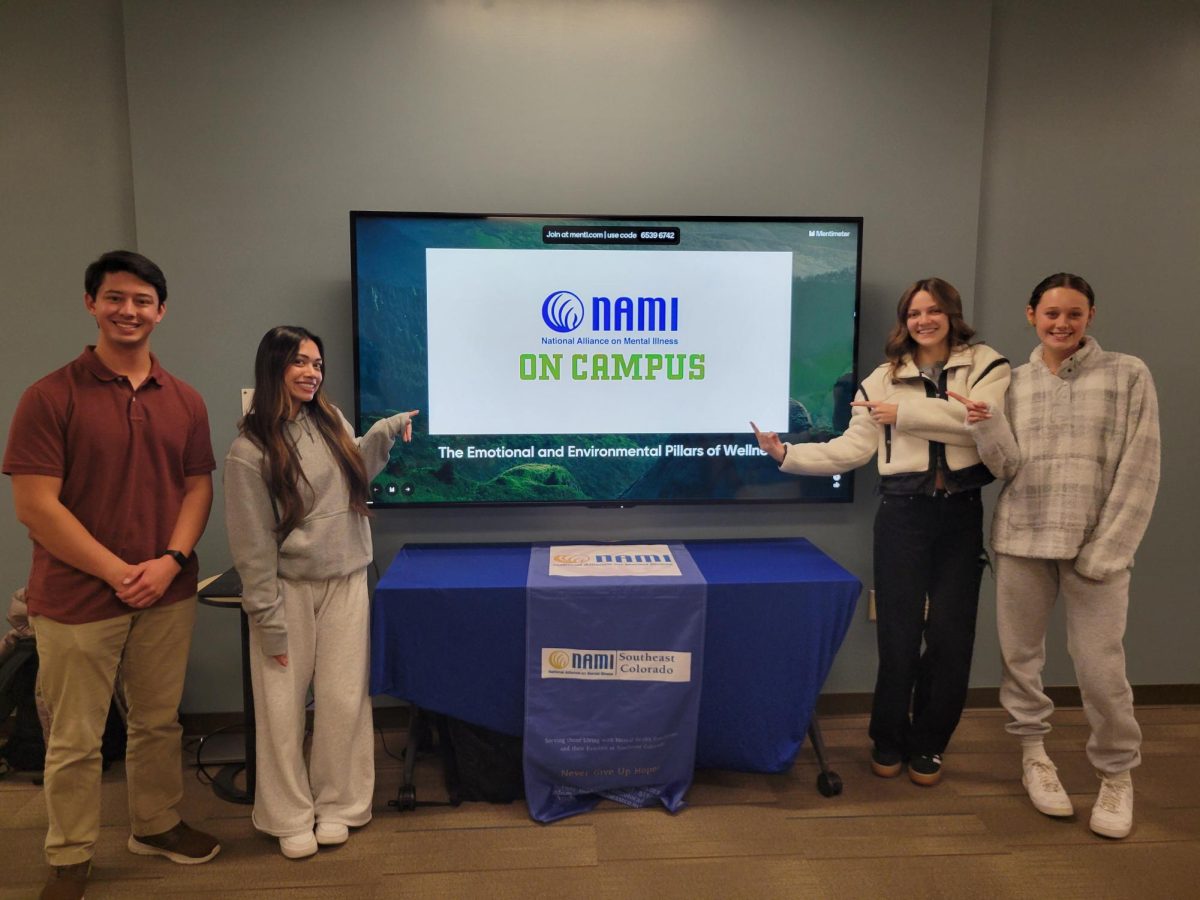“Dear Dr. King, my name is Byron Embry. I am a 33-year-old professional athlete, husband and father of three. I lay in bed at night tossing and turning wondering why no one has confidence in my leadership…Did you deal with discouragement anytime in your leadership?”

Embry, a former Atlanta Braves baseball player and keynote speaker of his own series, “Closing Remarks,” gave the speech, “Walking in Memphis,” on Monday, Jan. 18, at the Second Annual Martin Luther King Jr. Day Breakfast Event in the Occhiato University Center West Ballroom at Colorado State University-Pueblo.
The breakfast event was sponsored by the Diversity Resource Center in collaboration with the Black Student Organization of CSU-Pueblo.
LaNeeca Williams, director of the Diversity Resource Center, said she thought Embry’s message would be useful and inspiring to college students, as well as pay homage to King.
“I particularly like the fact that he (Embry) questioned his own leadership skills in his speech. He talked about asking Dr. King: ‘Am I doing this right?’” Williams said. “I think our students, especially our student leaders, often have that struggle, too.”
Williams said students can learn from King’s perseverance and leadership and apply it to their own lives.
The speech was based on the idea that Embry wrote to the deceased King as he struggled with discouragement as a leader. The imagined response follows Dr. Martin Luther King Jr. into the final hours before his assassination in Memphis, Tenn., on April 4, 1968.
“Tell me have you tasted the fruit of my labor?” Embry said, reading from the hypothetical letter written by King.
Embry read from King’s letter where he discussed overcoming fear and standing his ground on the civil rights movement in the face of death. King recalled death threats he was sent as he worked with striking sanitation workers in Memphis in the days before his death.
“It was not a matter of what would happen to me. It was not about what would happen to the movement if I go to Memphis,” Embry said from King’s letter. “It came to the point where I thought, ‘What will happen to the sanitation workers if I don’t go?’ Leadership is not about you.”
In a letter responding to King, Embry shared his own struggle with racism at a young age when he was forced to leave a pizza party because of a classmate’s racist father. As an 8-year-old, he heard the man say he had to leave the home; that no ‘nigger’ would ever stay in his house.
Embry said his grandfather consoled him that day by telling him of King’s work, recalling a time when he held his wife’s hand and watched her cry when King spoke at Mason Temple in Memphis. Embry said it was then that his grandfather told him, “He didn‘t just inspire us as a people, he ignited a nation.”
Embry closed “Walking in Memphis” by talking about Barack Obama’s election to the presidential office 40 years after King’s death. He said he watched his wife cry when the electoral votes were counted and Obama’s name was announced as the winner.
“Dr. King you asked a question: ‘Have you tasted the fruit of my labor?’” Embry said. “I tasted the fruit, we all did.”
Embry said he felt joy as he celebrated the win with a pizza party for his 5-year-old daughter in celebration of her realization that someday she, too, could be president.
“Dr. King, thank you for teaching us how to be the leaders to go to the mountain. Thank you for teaching us how to be leaders to stand firm when the altitude seems too much. But above all thank you for teaching us that being a leader means standing firm in your American way of life even if it costs your own,” Embry said as the audience applauded.








Ken Nilsen • Feb 22, 2010 at 7:54 am
I do enjoy the time of year when people look back on the great Dr. King. It pains me though when they invoke B. H. Obama. Please do not compare the two men. Dr. King understood the Bible and the freedom that is given to man by God. Dr. King did not want a man to be voted for because of his skin color, but “…by the content of their character…”. Dr. King did not believe that you should blame someone else for your problems, but look to God, gain understanding, and overcome what is before you. Dr. King did not want to see black children dying in the projects, being fed by a government, and oppressed and held in place by men like Sharpton and Jackson. It is time we stopped twisting the message of the great Dr. King and instead of talking about how bad someone is treating us, start seeing the greatness within each of us, rise up, educate ourselves, be strong, seek God, and spread freedom in our communities.